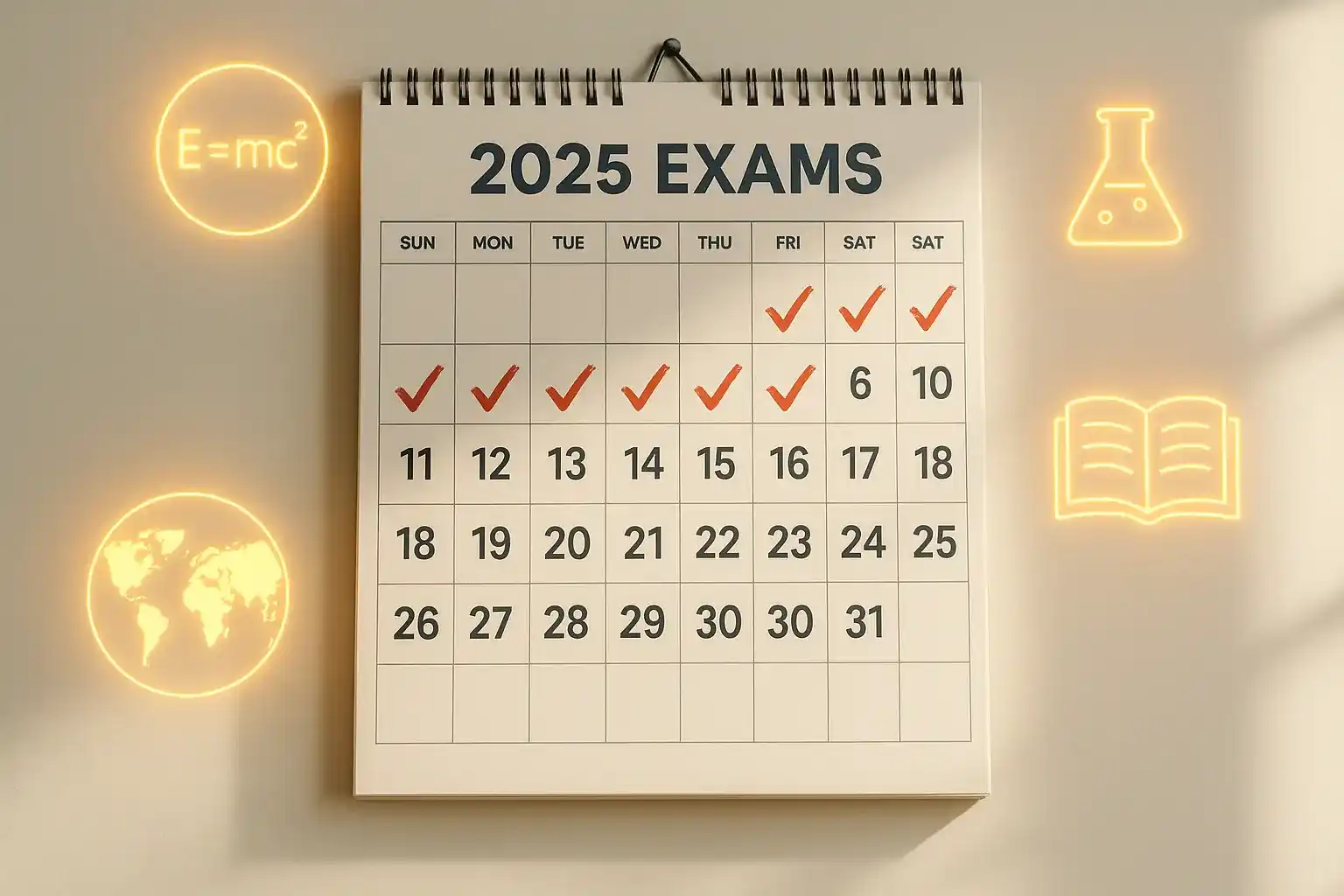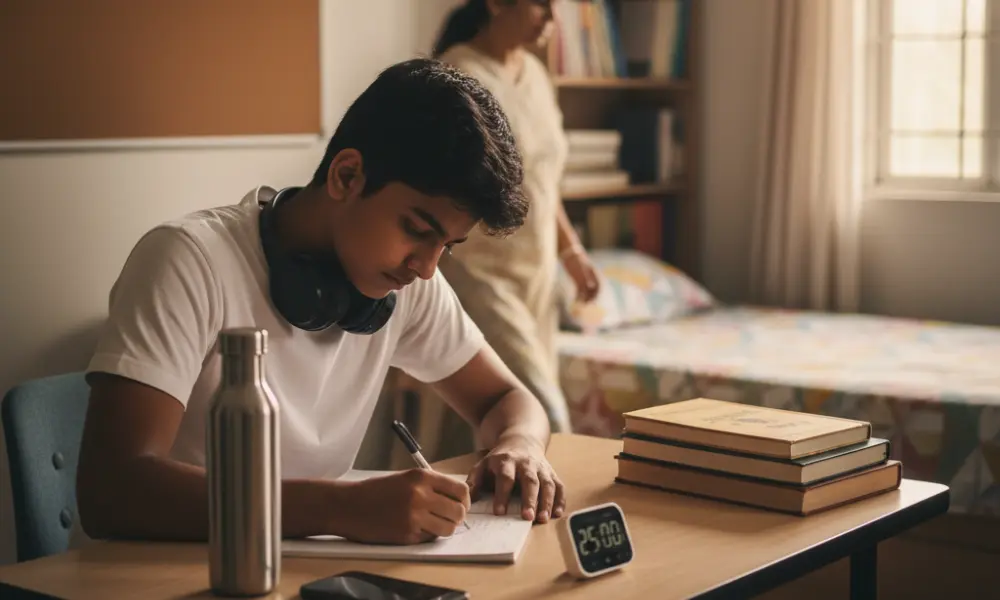Daily Revision Routines That Guarantee Higher Scores for CBSE Students
How smart daily revision schedules boost memory and exam scores
Daily revision is more powerful than marathon study sessions. This blog explains why, provides science-backed schedules, and shares subject-wise hacks to help CBSE students score higher in 2025 exams.

Many CBSE students assume that studying for long hours is the key to scoring well. In reality it is not the number of hours but the consistency of revision that creates lasting results. Daily revision routines strengthen memory recall reduce exam stress and help students feel confident about their preparation. This blog shares practical routines backed by research and real-life experiences of toppers to show how even small but regular revision sessions can transform exam performance.
Why daily revision is crucial for CBSE success
Research in cognitive science shows that information reviewed daily is stored longer in the brain. Without regular revision students forget up to 80 percent of what they study within a week. CBSE exams require not just understanding but also quick recall under time pressure. Daily revision ensures concepts remain fresh builds long-term retention and reduces the last-minute panic that many students face before exams.
Revision is not about re-reading the book. It is about recalling what you learned yesterday and reinforcing it today.
Best time slots for maximum retention
The human brain is most alert during certain windows of the day. For CBSE students balancing school homework and tuition classes the right timing can make all the difference:
Early morning between 5 AM and 7 AM when the mind is fresh
Right after school in the afternoon to revise what was taught that day
Before bedtime for a quick recap which helps the brain consolidate learning during sleep
Choosing consistent slots every day helps the brain form habits making revision automatic rather than forced.
Sample daily revision timetable
Here is a simple revision-friendly timetable that students can adapt to their schedules:
5:30 AM – 6:15 AM Quick recap of Science formulas and diagrams
4:00 PM – 5:00 PM Revise Maths problems solved in school
7:00 PM – 7:30 PM Active recall of English chapters or writing practice
9:00 PM – 9:20 PM Flashcard review for difficult concepts across subjects
This approach divides revision into smaller chunks throughout the day instead of long unproductive sessions.
Active recall and spaced repetition methods
Two proven learning strategies make revision highly effective. Active recall means testing yourself instead of passively reading. For example closing the book and writing down what you remember. Spaced repetition is the method of reviewing the same topic at increasing intervals. Digital tools like flashcard apps or even simple paper flashcards can help students apply these methods consistently.
Subject wise daily revision hacks
Mathematics
Practice at least five sums daily from different chapters instead of doing one chapter at a time. This keeps concepts fresh and strengthens problem-solving speed.
Science
Draw diagrams and label them from memory. Revise formulas and definitions in small bursts. Use daily flashcards for Chemistry reactions and Physics laws.
English
Read one literature passage and attempt a sample question daily. Spend ten minutes on grammar or writing tasks like letter writing or notice writing.
Social Science
Summarize each chapter into five bullet points and revise one topic every day. Map practice for Geography should be done daily even for ten minutes.
How to track progress effectively
Tracking progress keeps students motivated. Maintain a revision diary where you mark topics revised each day. Use simple checklists to track completed chapters. Weekly self-tests help identify weak areas that need extra focus. Parents can encourage children by checking their revision diary rather than constantly asking about marks.
Avoiding over revision and fatigue
Revision must not turn into mindless repetition. Over revision often leads to boredom and burnout. Instead students should aim for short sessions of 20 to 30 minutes with small breaks. Mixing subjects across the day prevents monotony. If a topic feels mastered it should be revised less frequently allowing more time for weaker areas.
Final roadmap to consistent practice
Consistency is the ultimate secret behind daily revision. Students who revise a little every day score significantly higher than those who depend on last-minute cramming. The roadmap is simple. Fix daily slots for revision use active recall and spaced repetition track progress weekly and avoid overloading. With this balanced approach CBSE students can walk into the 2025 exams with confidence clarity and calmness.
Daily revision is the bridge between hard work and high scores. Cross it every day and success will follow.
Suggested blogs

How to Build a Realistic Daily Study Routine for CBSE Class 10 Without Burnout
Design a balanced study routine for Class 10 students to thrive without stress.

How to Use Visualization for Better Concept Retention
Unlocking the power of visualization for effective learning

The Power of Self-Assessment: How to Evaluate Your Learning Progress
Unlock your potential through effective self-assessment strategies.

How to Stay Focused While Studying at Home
Master your study time with effective focus techniques.
